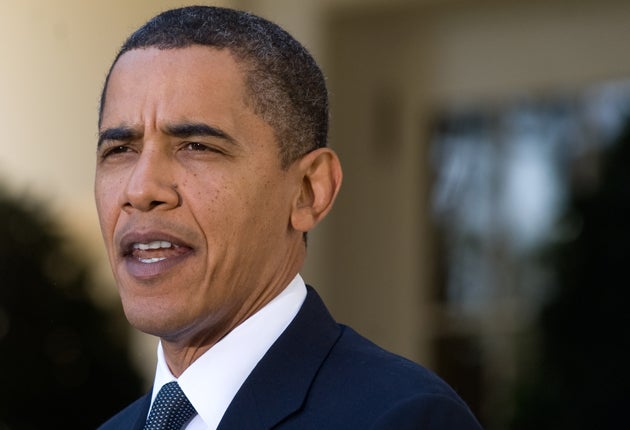Obama declares swine flu a 'national emergency'

President Barack Obama has signed a proclamation declaring H1N1 swine flu a national emergency, according to the White House. The proclamation, which Mr Obama signed on Friday night, will make it easier for US medical facilities to handle a surge in patients by allowing the waiver of some requirements of Medicare, Medicaid and other federal health insurance programmes as needed, the White House said in a statement.
The Centers for Disease Control and Prevention (CDC) said on Friday that H1N1 swine flu has become widespread in 46 of the 50 states, a level comparable to the peak of ordinary flu seasons, but far earlier and with more waves of infection expected. Seasonal flu normally peaks sometime between late November and early March. The White House statement said the declaration was intended to prepare the country in case of "a rapid increase in illness that may overburden healthcare resources" and was similar to disaster declarations issued before hurricanes.
Swine flu has hit young adults and children the hardest, while seasonal flu is normally more dangerous for people over 65. H1N1 has killed more than 1,000 Americans and put more than 20,000 in hospital since it emerged earlier this year, the CDC said. But health officials are quick to note the actual number of cases cannot be measured, as mild infections are often not counted.
"Forty-six states having widespread transmission is the peak of flu season. To be basically in the peak of flu season in October is extremely unusual," said Dr Thomas Frieden, CDC director.
In a separate statement, the World Health Organization reported more than 414,000 laboratory-confirmed cases of H1N1 worldwide, with almost 5,000 deaths. But the figures are only the tip of the iceberg, it said.
Subscribe to Independent Premium to bookmark this article
Want to bookmark your favourite articles and stories to read or reference later? Start your Independent Premium subscription today.

Join our commenting forum
Join thought-provoking conversations, follow other Independent readers and see their replies